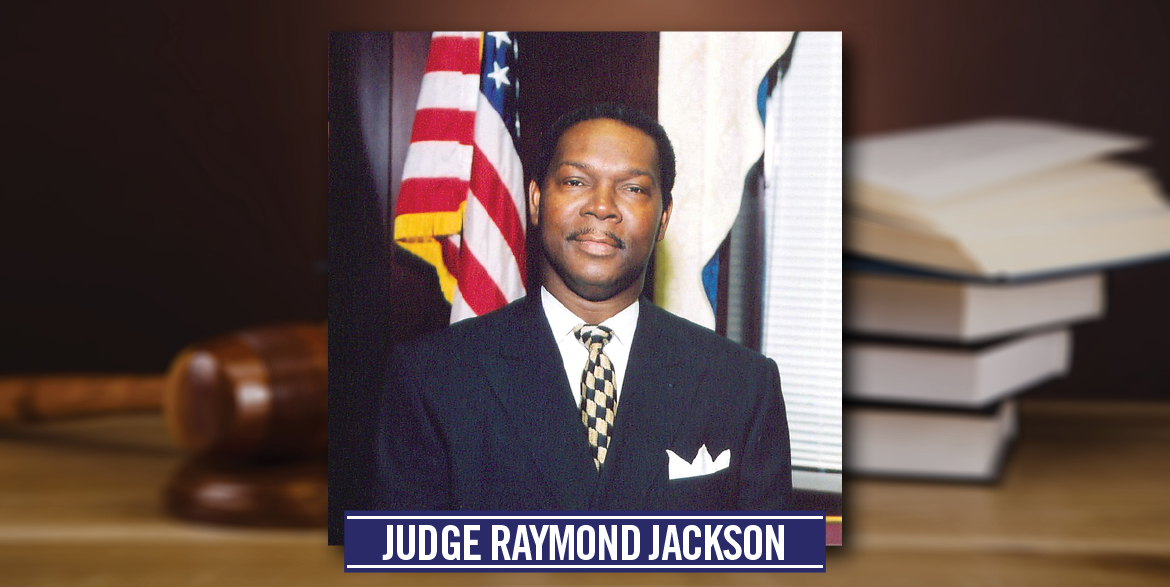Judge Raymond A. Jackson
CLEO 1970
CLEO 1970
“I believe CLEO was a significant key to my success in law school. The CLEO program provided me additional confidence that I could successfully compete with law students from any college or university.”
Judge Raymond A. Jackson’s career has been dedicated to public service. As a captain in the Judge Advocate General’s Corps of the United States Army, he served as Chief Defense Counsel at Fort Bragg, North Carolina, representing soldiers in over 300 courts-martial. During his service at the United States Army Training and Doctrine Command (TRADOC), Fort Monroe, Virginia, he served as both Chief Defense counsel with administrative responsibility for defense counsel at sixteen military installations and head of the Criminal Law Division. After several years in the United States Army Reserve, Judge Jackson was promoted to Colonel and later retired.
For sixteen years, Judge Jackson was an Assistant United States Attorney for the Eastern District of Virginia. As Executive Assistant United States Attorney for the Eastern District of Virginia for six years, he managed the United States Attorneys office in the South Hampton Roads and Peninsula regions. Other duties included service as Chief of the offices Criminal Division in which he prosecuted and supervised a wide variety of criminal cases. Additionally, Judge Jackson worked as Chief of the Civil Division in which he litigated cases and supervised attorneys in representing the United States in a variety of civil law suits.
In November, 1993, President Bill Clinton appointed Judge Jackson to the United States District Court for the Eastern District of Virginia. Of the thousands of lawyers the United States Congress and Presidents have appointed as United States District Judges, Judge Jackson was the 76th African-American to be appointed.
Judge Jackson has a record of providing legal instruction to students, lawyers and judges. He is an instructor and mentor judge for newly appointed federal judges. For nearly ten years, he was an adjunct faculty member at the William and Mary School of Law in Williamsburg, Virginia. Additionally, he has taught at the Attorney General’s Advocacy Institute in Washington, D. C. and other continuing legal education seminars.
During his tenure as a United States District Judge, he has adjudicated hundreds of cases and issued a wide variety of legal opinions. His most recent case of significant precedent includes United States v. Kimbrough (2007) in which the United States Supreme Court affirmed his ruling that the Court could consider the unwarranted and harsher disparity in penalty for crack cocaine offenses compared to cocaine offenses in deciding that a lower sentence for a defendant charged with a crack cocaine offense was proper.
As a member of the Virginia State Bar, Judge Jackson served on the governing body of the Virginia State Bar, Virginia State Bar Council, the Executive Committee, and as Chairman of the Standing Committee on Lawyer Discipline. He is a past president of the Old Dominion Bar Association, a statewide bar association. From 2000-2002, he also served as President of the I’Anson-Hoffman Chapter of the American Inns of Court, a national organization composed of judges, lawyers, law students and law professors organized to promote professionalism, ethics, and civility in the legal profession. Judge Jackson’s extensive memberships include the Judicial Conference for the United States Court of Appeals for the Fourth Circuit; the United States District Judges Association, the Virginia Law Foundation, the Maritime Law Association, the Norfolk-Portsmouth Bar Association, the South Hampton Roads Bar Association, and Sire Archon (President) Sigma Pi Phi Fraternity. As a life member of Kappa Alpha Psi Fraternity, he was the Polemarch (President) of the Norfolk Alumni Chapter. He is a recipient of numerous awards and honors.
Judge Jackson is a native of Sussex County, VA. While attending Norfolk State University, he earned a Bachelor of Arts Degree, cum laude, in Political Science and was commissioned an officer in the United States Army, at age 20. At the University of Virginia School of Law, he earned the Juris Doctorate degree and was licensed as an attorney in Virginia.

